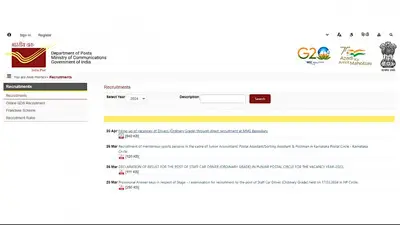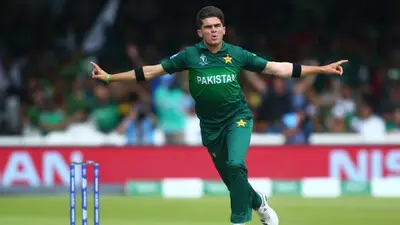Recommended Stories
While the Indian team, comprising top CEOs like Mukesh Ambani, Azim Premji, Adi Godrej, Rahul Bajaj and Sunil Mittal, as also Commerce and Industry Minister Anand Sharma and Planning Commission Deputy Chairman Montek Singh Ahluwalia, will get an opportunity to present the India growth story on a global platform - the World Economic Forum (WEF) Annual Meeting 2012 - the discussions about global economic scenario are most likely to remain gloomy.
The Indian economy has also not remained untouched by the global upheavals, mainly in Europe, and its growth rate in July-September quarter was slowest in more than two years.
Also, the GDP growth for the current fiscal is feared to be slip to near 7 per cent, or even below, as against earlier projections of 7.5 per cent. Still, the Indian economic growth rate remains robust, especially in the backdrop of the deteriorating global conditions, although the concerns of slower economic reforms and a sense of policy paralysis has affected the business sentiments.
A senior Indian delegate attending the meeting said that it would be interesting to watch whether the business leaders from India would raise the issue the policy paralysis and slowing pace of reforms at Davos WEF meeting as well, or they would continue with their usual praise for the Indian growth story.
More than 100 Indian business leaders are expected to be present here, making them one of the largest teams after the likes of the US, the UK and Japan. While the exact numbers for other countries were not available, the number of business leaders from China is also expected to be lower.
Among other issues, the meeting would discuss `India`s Tall Ambitions`, its preparedness to deliver inclusive growth for a huge population, while achieving effective governance at central and state levels and promoting its model of democratic capitalism.
The meeting would also have a discussion on `How Immune Is India?`, in the backdrop of the Europe, Japan and the United States facing serious structural and societal challenges.
Ahead of the event, the organisers, the WEF has released its latest Global Confidence Index, that shows that the majority of the global experts are fearing a geopolitical disruption in 2012.
With as many as five state elections lined up back in the country in coming weeks, the political scenario is also undergoing a major transition period in India, while anti-corruption protests have been hitting headlines quite regularly in recent months.
The US and the UK have also witnessed strong Occupy Wall Street and Occupy London (Stock Exchange) protests, while the protesters are also gearing up for an `Occupy Davos` protest here and are setting up Igloos near the place of event in this chilling weather.
"Fear among international experts of a major geopolitical disruption over the next 12 months has risen significantly to 54 per cent, just as confidence in the state of global cooperation has dropped," found the WEF`s third Global Confidence Index.
The respondents also remain pessimistic about the global economic outlook, as the crisis of confidence reflected in the previous two quarters continues unabated. A consistent 60 per cent of respondents said they lacked confidence in the state of global governance, signalling little trust in political leadership to deal with global risks.
Another gauge of the business sentiments would be available this evening, as the consultancy major PwC would release its annual survey of CEOs from across the world at an event here this evening.
Besides the top business leaders, young Indian leaders like like Jyotiraditya Scindia and Sachin Pilot would also be here for the this annual congregation of the political leaders, CEOs, top bankers and experts from various segments.
Global leaders expected to be present here include German Chancellor Angela Merkel, British Prime Minister David Cameron, as also the chiefs of organisations like IMF, World Bank, OECD and WTO.
WEF, a Geneva-based non-profit organisation, has been holding this Annual Meeting here for over four decades now. Close to 40 heads of state or government from across the world are attending the meeting this year, while WEF is anticipating a record of over 2,600 participants this year, including more than 1,600 business leaders from across the world.
Ahead of the meeting, themed `The Great Transformation: Shaping New Models`, WEF Founder and Executive Chairman Klaus Schwab said that "capitalism, in its current form, no longer fits the world around us. We have failed to learn the lessons from the financial crisis of 2009."
"A global transformation is urgently needed and it must start with reinstating a global sense of social responsibility," Schwab said.
Citigroup chief Vikram Pandit is one of the six co-chairs of the WEF Annual Meeting 2012, rubbing shoulders with the likes of Unilever CEO Paul Polman and Royal Dutch Shell CEO Peter Voser.












